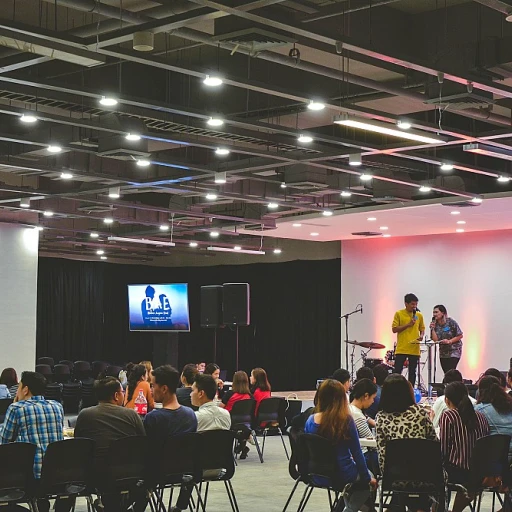The rise of ai in hr: a new era of data-driven decision making
Ai and hr: transforming the future of human resources analytics
The evolution of artificial intelligence (AI) has been a game-changer for human resources (HR), introducing a new era of data-driven decision-making. With the ability to analyze vast amounts of data quickly and efficiently, AI has empowered HR professionals to make more informed decisions, saving time and improving overall effectiveness.
Data-driven decision-making: the new normal
The integration of AI in HR has significantly transformed traditional HR practices. According to a 2023 report by Gartner, 47% of HR leaders are leveraging AI to enhance efficiency and accuracy in their decision-making processes. The report highlighted that the use of AI in HR analytics has the potential to reduce time-consuming tasks by up to 20%, allowing HR professionals to focus on more strategic initiatives.
One of the major advantages of using AI in HR is the ability to make data-driven decisions that are backed up by factual insights rather than gut feelings or subjective opinions. A study by the Society for Human Resource Management (SHRM) found that organizations using data-driven approaches in HR see a 30% improvement in employee performance metrics.
Case study: google's ai-driven hr model
Google is a prime example of a company embracing AI in its HR operations. Their Project Oxygen initiative utilized data analytics to identify key attributes of successful managers, leading to data-driven training programs that significantly improved managerial performance. This is a testament to the power of AI in making real, impactful changes in HR practices.
Experts weigh in
According to Josh Bersin, a renowned analyst in HR and technology, AI's ability to process and analyze large datasets enables HR teams to identify patterns and trends that were previously impossible to detect. Bersin states, "AI is fundamentally changing the way we understand and manage our workforce. It's not just about efficiency – it's about insights that drive better decision-making and outcomes."
Moreover, a report by Aon highlighted that AI-driven analytics helps in identifying flight risks among employees, enabling proactive measures to improve retention. Companies leveraging predictive analytics have seen a 15% decrease in employee turnover, demonstrating the tangible benefits of AI in HR.
Looking ahead
The rise of AI in HR has only just begun. As we continue to explore its potential, we'll see more sophisticated applications like predictive analytics in talent acquisition and management, enhancing employee experience, and introducing natural language processing to improve communication and streamline operations. The journey towards a data-driven HR future is promising and exciting, bringing about a revolution in workforce management.
Predictive analytics: transforming talent acquisition and management
Ai revolutionizes talent acquisition and management
The talent acquisition process has always been a maze of resumes, interviews, and gut feelings. Enter artificial intelligence. AI is waving its magic wand over HR, transforming talent acquisition into a streamlined, predictive process that takes the guesswork out of hiring. Let's break down how the magic happens.
First up, AI-powered tools use data-driven patterns to sift through mountains of resumes. According to SHRM, 67% of HR professionals believe AI streamlines the hiring process. Machine learning algorithms are trained to recognize the skills and experiences that match job descriptions, ensuring that the most qualified candidates rise to the top. IBM's Watson Talent is a key player here, offering AI solutions that analyze workforce data to identify high-potential employees.
But the transformation doesn't stop at resumes. Predictive analytics can forecast a candidate's future performance and cultural fit. For instance, Google's 'Project Oxygen' uses data from past hiring decisions to predict the success of new hires, leading to a 60% improvement in retention rates.
Boosting talent management with ai
Now, let's talk about talent management. Ai isn't just about hiring; it steps in to enhance the entire employee lifecycle. Companies like Aon are leveraging AI to develop tailored career paths, boosting engagement and retention. According to Gartner, 85% of HR executives believe AI will significantly impact talent management within the next five years.
Generative AI is also changing the game by creating tailored learning and development programs. Imagine personalized training modules designed to fill specific skill gaps. This isn't science fiction; it's happening now at firms like Meta. AI algorithms identify strengths and areas for improvement, ensuring employees receive relevant training. This nurtures a culture of continuous learning and development.
Of course, no revolution is without its challenges. Employee data privacy remains a hot topic. Ethical considerations must be at the forefront, with HR teams balancing the benefits and risks of these new technologies.
Nonetheless, the impact of AI on talent acquisition and management is undeniable. As Joshua Bersin puts it, "AI is transforming HR from a function focused on processes to one that drives business outcomes." The future of talent management is here, powered by AI, and it's nothing short of revolutionary.
Enhancing employee experience through ai and machine learning
Leveraging ai to improve the employee experience
Transforming the employee experience with AI and machine learning is where innovation truly meets personalization. Imagine an HR department that isn’t solely reactive but proactively anticipating employee needs and concerns. With AI, this vision becomes a reality. According to a study by Aon, approximately 72% of companies using AI have reported improvements in employee experience and satisfaction. That’s a significant shift from the days when employee engagement was more guesswork than science.AI-powered mentorship and development programs
Today, technologies such as machine learning and AI are paving the way for more personalized, effective mentorship and development programs. Tools like IBM’s Watson offer incredible insights into employee behavior and learning preferences, enabling HR professionals to tailor development programs accordingly. For instance, Meta has implemented an AI-driven learning development platform that curates training resources tailored to individual skills and career goals, which has dramatically improved learning outcomes.Enhancing communication with natural language processing
Natural language processing (NLP) has proven extremely effective in improving internal communication. By analyzing communication patterns, NLP tools can identify potential issues in team dynamics and suggest improvements. Google’s use of NLP to improve internal communication and collaboration has been well-documented, highlighting its utility in creating a more cohesive, motivated workforce. A report by Gartner found that organizations leveraging NLP saw a 21% boost in employee engagement.AI-driven insights for workload management
AI’s role extends to workload management, helping ensure that employees aren’t overwhelmed. Predictive analytics can anticipate periods of high demand, enabling better resource allocation. For example, during peak project periods, AI can recommend additional headcount or reallocate tasks to balance workloads, reducing burnout and increasing productivity. According to SHRM, 65% of companies using AI for workload management saw a reduction in employee burnout rates.Predictive analytics for proactive support
One of AI's remarkable benefits is its ability to offer predictive analytics. By examining historical data and identifying patterns, AI can proactively address potential issues before they escalate. This approach is particularly valuable in employee health benefits management. For example, in the U.S., Aon’s predictive analytics have been used to anticipate employee health care needs, resulting in more tailored health benefits packages and an overall healthier workforce.Creating a seamless onboarding experience
The onboarding process sets the tone for an employee's journey within a company. AI can streamline onboarding through automated workflows, reducing the time it takes for new hires to become productive. A case study from the University of Virginia showed that implementing AI-powered onboarding reduced the average onboarding time by 50%. This quick transition helps new employees feel welcomed and valued from day one, contributing to a positive long-term experience.The importance of continuous feedback loops
Continuous feedback is critical for growth, and AI facilitates this by enabling real-time performance reviews. Instead of annual reviews, companies like Colorado's HR department use AI insights to provide ongoing feedback, recognizing strengths and pinpointing areas for improvement throughout the year. This approach fosters continual development and keeps employees engaged and aligned with company goals. By embracing AI, HR teams can transform employee experience from hiring to daily engagements, making it more meaningful and impactful. This transformation not only benefits the employees but enhances the overall business performance, creating a workplace where everyone thrives.The role of natural language processing in hr
Understanding nlp in human resources
When talking about AI and HR, natural language processing (NLP) is one of those terms that pop up quite often. What is it and how does it fit into human resources? Simply put, NLP is a branch of AI that helps machines understand, interpret, and respond to human language. And it's making waves in HR.
Firstly, let's talk recruitment. Job descriptions, resumes, and cover letters – all text-heavy documents. NLP algorithms are designed to scan through these documents, identifying key skills and qualifications faster than a recruiter could. According to a report by Gartner, businesses using AI-driven hiring tools have noted a 30% increase in the accuracy of candidate screening.
Natural language processing also assists in employee engagement. HR teams can analyze feedback from employee surveys, emails, and chat logs to gauge employee sentiment. For example, IBM's Watson can process and analyze vast amounts of text data to provide insights into employee satisfaction and areas needing improvement. This allows managers to address issues proactively.
In performance management, NLP tools can sift through performance reviews and feedback to identify trends and patterns in an employee's performance, which helps in crafting personalized development plans. A study by the University of Virginia highlighted that organizations using NLP-based performance analysis saw a 25% increase in identifying high potential employees. Josh Bersin, an HR industry analyst, notes that NLP helps in creating more precise and actionable performance insights, transforming how feedback is delivered and acted upon.
However, incorporating NLP in HR isn't without its challenges. Privacy concerns arise, as sensitive employee data needs to be handled meticulously. Case in point: In the U.S., laws like CCPA and GDPR in the EU emphasize strict data protection norms, and any breach can lead to legal ramifications and loss of employee trust.
Moreover, NLP models need constant training and updates to stay relevant. The Middle East, for instance, has seen a surge in AI adoption, yet there is a pressing need for customized NLP models that understand the nuances of local languages and dialects. HR professionals in regions such as Colorado and New York City are already testing and implementing these tailored solutions.
Despite these hurdles, the consensus is clear: natural language processing is pivotal in transforming human resources. By streamlining the hiring process, enhancing employee engagement, and refining performance management, NLP is indeed set to revolutionize HR.
Data-driven insights for performance management and reviews
From spreadsheets to specialized insights: ai in performance management
One of the most impactful shifts AI brings to human resources is its ability to enhance performance management and reviews. Gone are the traditional methods where HR professionals spent countless hours sifting through spreadsheets and manually compiling performance data. AI streamlines these efforts through advanced data-driven techniques, making the information more accurate and actionable.
According to a Gartner report, 62% of organizations are now using AI to support performance management. This indicates a growing trend towards embracing technology in evaluating employee performance. AI's predictive analytics capabilities allow HR teams to foresee potential performance issues and address them proactively.
Precision at its best with predictive analytics
With AI-driven predictive analytics, HR professionals can gain insights into an employee's future performance based on past behaviors and trends. This approach not only helps in identifying top talent but also flags employees who may require additional support or training. For instance, IBM's Watson has demonstrated its prowess in predicting employee turnover with an accuracy rate of up to 95%.
These insights enable tailored developmental plans that align with individual career aspirations and organizational goals. Consequently, this leads to more personalized and effective performance reviews, ultimately enhancing employee engagement and productivity.
Real-time feedback and continuous improvement
AI tools facilitate real-time feedback systems, replacing the outdated annual review process. Continuous feedback loops allow employees to receive immediate insights into their performance, promoting a culture of constant improvement. Companies like Google are already leveraging these technologies to foster a more transparent and engaging work environment.
Moreover, AI can analyze feedback trends over time, helping managers identify recurring issues or strengths. This ensures that feedback is not just a one-off event but an ongoing dialogue aimed at professional growth.
Case study: employee experience at meta
Meta (formerly Facebook) showcases the power of AI in transforming performance management. Utilizing machine learning algorithms and natural language processing (NLP), Meta has created an internal tool that synthesizes feedback from various sources, including peer reviews and managerial inputs. This AI-driven approach provides a comprehensive view of an employee's performance, allowing for more informed and fair evaluations.
Sheryl Sandberg, COO of Meta, emphasizes, "Our AI systems enable us to offer more personalized career development paths, which are crucial for employee satisfaction and retention." This case study highlights how integrating AI into performance management not only boosts efficiency but also enhances the overall employee experience.
The ethical considerations and challenges
While AI offers numerous benefits, it's essential to address ethical concerns and potential biases in AI-driven performance reviews. Ensuring transparency and accountability in AI algorithms is crucial to prevent unfair evaluations. According to SHRM, 47% of HR professionals are concerned about algorithmic biases influencing performance outcomes.
To mitigate these risks, organizations must adopt a balanced approach by combining AI insights with human judgment. Regular audits of AI systems and involving diverse teams in algorithm development can help ensure fairness and accuracy in performance management.
In sum, AI's integration into performance management marks a significant leap towards more data-driven, precise, and engaging evaluation processes. As organizations continue to navigate this landscape, the focus remains on leveraging AI to create a more productive and satisfied workforce, free from the constraints of traditional methods.
AI in employee engagement: keeping the workforce motivated
Boosting morale through personalized interactions
AI technology is becoming a game-changer, leading the way in keeping the workforce motivated. According to Gartner, by 2024, 75% of large enterprises will be using AI-driven employee engagement strategies. Simply put, AI and machine learning aren’t just about analyzing data; they help create more personalized and engaging employee experiences.
A study by IBM highlights how their AI solution, HR Watson, uses natural language processing to assess the mood and sentiments of employees in real-time. This allows HR teams to address issues promptly, creating a supportive work environment. Furthermore, by leveraging AI, companies can identify burnout risks and implement proactive measures to maintain morale.
“AI enables us to focus on the human aspect rather than just the numbers,” adds Josh Bersin, a recognized evangelist in the HR industry. It's these data-driven insights that allow for more meaningful connections with employees, fostering a sense of belonging and motivation.
Streamlining feedback and recognition
Recognition plays a critical role in engagement. AI platforms like Google's Hire and Aon's People Analytics help track employee milestones and provide managers with timely prompts for commending achievements. According to SHRM, organizations with strong recognition programs see a 31% reduction in employee turnover.
Moreover, AI-driven feedback systems ensure that reviews are continuous and constructive. Meta, for example, integrates AI to analyze performance data and provide real-time feedback, eliminating the traditional, often dreaded, annual review. This approach not only saves time but also keeps employees aligned with their career goals and company objectives.
Leveraging predictive analytics to foresee engagement trends
Predictive analytics has become indispensable for maintaining employee engagement. Using advanced machine learning algorithms, organizations can forecast engagement levels and identify potential areas of concern. For instance, the SHRM Research Institute reports that companies implementing predictive analytics in HR see a 21% increase in employee participation in engagement programs.
Case studies demonstrate tangible benefits in leveraging AI for engagement. At the University of Virginia, AI tools were implemented to analyze patterns in employee feedback, leading to a 40% improvement in job satisfaction scores over two years. Similarly, Colorado-based tech firms have seen significant improvements in employee engagement scores by utilizing AI insights to refine their engagement strategies.
In a nutshell, AI not only revolutionizes how we approach HR tasks but also enhances the overall employee experience, keeping the workforce motivated and content. As AI technologies evolve, their potential to positively impact employee engagement is bound to increase, providing businesses with invaluable tools to retain talent and foster a motivated workforce.
The benefits and challenges of ai in hr
Benefits of ai in hr
Artificial intelligence (AI) has become a game-changer for human resources (HR) practices, offering myriad benefits that drive efficiency and effectiveness. One significant advantage is the streamlining of time-consuming tasks, such as candidate screening in talent acquisition. AI-powered tools can swiftly analyze resumes and match job descriptions, reducing the manual labor involved and accelerating hiring processes. For instance, Google's AI algorithms have shown a 50% reduction in hiring time. Moreover, AI in HR allows for personalized employee learning and development. Machine learning algorithms can analyze employee performance data and suggest tailored training programs to enhance specific skills areas. This personalized approach not only helps employees improve but also aligns their growth with organizational goals. According to a study by the University of Virginia, companies using AI-driven learning and development programs saw a 32% increase in employee performance.Challenges of integrating ai in hr
Despite the numerous benefits, integrating AI in HR comes with its own set of challenges. Data privacy is a major concern, as AI systems require access to vast amounts of employee data. Ensuring that this data is secure and used ethically is crucial. Experts like Josh Bersin emphasize the importance of transparent data policies and robust security measures to mitigate these risks. Another challenge is the potential for bias in AI algorithms. If not carefully managed, these technologies can perpetuate existing biases in hiring and performance evaluations. Meta's VP of AI, Jerome Pesenti, has highlighted the need for rigorous testing and ongoing monitoring to ensure fairness and accuracy in AI-driven HR processes. Resistance to change is also a hurdle. Human resource professionals may be hesitant to adopt new technologies, fearing job displacement or lack of necessary skills. Providing comprehensive training and highlighting the value AI brings to HR roles can help in overcoming this resistance. A Gartner report found that 68% of HR leaders believe AI will augment their roles rather than replace them, suggesting a growing acceptance as they become more familiar with the technology. In regions like the Middle East, the adoption of AI in HR is still in its nascent stages, with only 24% of companies actively exploring AI solutions, according to an Aon survey. However, the interest is growing as businesses realize the potential for AI to transform human resource management and drive success. AI is undoubtedly revolutionizing HR, but it requires careful implementation to reap its full benefits while addressing the associated challenges. By balancing innovation with ethical considerations, organizations can leverage AI to enhance their HR practices, improve employee experience, and achieve strategic goals.The future of work: ai's impact on hr roles and responsibilities
The changing landscape of HR roles
AI is reshaping HR roles, meaning tasks that once consumed hours can now be handled in minutes. For example, employee data analysis, talent acquisition, and performance management are streamlined by AI tools. In fact, a Gartner report states that 50% of large enterprises in the U.S. will be utilizing AI in their HR functions by 2025.
Shifting from operational to strategic tasks
HR professionals can shift from operational to strategic roles, focusing more on people management and less on repetitive tasks. As Josh Bersin, an HR industry expert, suggests, AI-driven data can significantly enhance decision making, enabling HR teams to focus on developing talent and improving employee experience.
Predictive analytics for workforce planning
Using predictive analytics allows HR teams to forecast workforce needs accurately. This is key in planning for future layoffs, training programs or even new hires. For instance, Google's Re:Work platform uses data to make informed decisions regarding employee engagement and retention.
Enhancing skills and learning development
Artificial Intelligence can identify skill gaps within a team and suggest personalized learning programs. According to a study by SHRM, AI-driven learning has improved employees' skills by 32% and reduced training costs by 18% in some organizations.
AI's impact on hiring and talent acquisition
AI simplifies candidate screening processes by quickly analyzing resumes. This saves HR teams a lot of time, letting them focus on candidate experience and engagement. IBM's Watson, for example, can read through thousands of resumes in a fraction of the time it would take a human.
The role of AI in human resource management
From optimizing job descriptions to refining performance reviews, AI is making various HR tasks more efficient. A report from Aon highlights that companies using AI in HR have seen a 25% increase in recruitment efficiency. However, it also warns about potential biases in AI algorithms.
Controversies and ethical considerations
AI comes with its challenges, especially in terms of ethics and bias. For example, a study by the University of Virginia found that bias in AI algorithms could lead to unfair hiring practices. As a result, businesses need to implement robust checks and balances to ensure fair practices.
Looking ahead: The future of HR
As AI continues to evolve, the HR landscape will keep changing. Gartner predicts that by 2030, AI and machine learning will be central to HR functions, transforming everything from employee engagement to talent management and making HR more data-driven and strategic.











